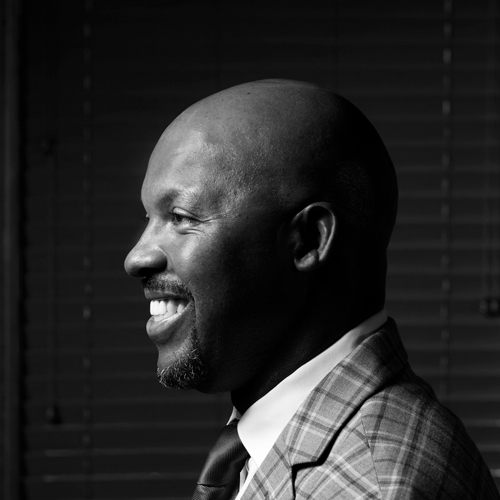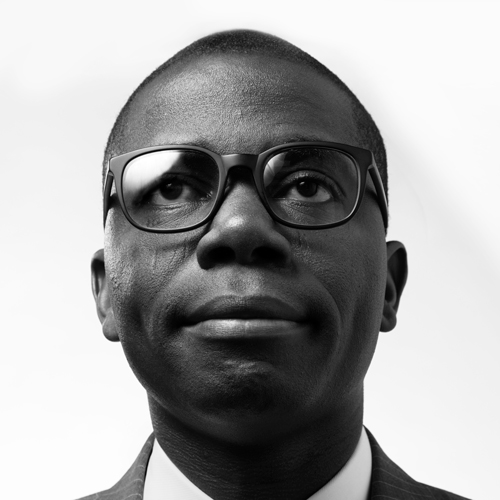Understanding the constant influx of tax policy changes or proposals in one country can create a healthy amount of stress and more than enough work for many financial officers. But now take into account that Francois Chadwick, vice president of tax and accounting for Uber, has to keep his finger on the pulse of such changes and proposals in nearly eighty different countries.
“Every day—and this goes without exception—brings new rules, new challenges, and new opportunities,” Francois explains, before adding a matter-of-fact summation of his responsibilities with the international ridesharing giant. “My role is to make sure I have at least the knowledge of everything that’s changing around the world.”

It’s a tall order, but fortunately not one that Chadwick has to handle alone. With a team of more than one hundred employees around the globe, he says the key to keeping an eye on all corners of the world is having an engaged team with open lines of communication.
“We push really hard to share knowledge globally,” Chadwick explains. “We’re constantly challenging the paradigm of the team to make sure they consider each others’ thoughts and tax knowledge from all around the world to not only question information from elsewhere, but also to use it to improve what we do in our various regions.”
When patterns emerge in different countries around the globe, Chadwick explains, the team is poised to not only improve Uber’s offerings and the way the company does business, but also have discussions with different international taxing authorities that can be more productive, transparent, and open than ever before.
That connectivity doesn’t only apply to Chadwick’s team, either. He says one of the driving factors in Uber’s rapid growth throughout the world is its reliance on sharing information across all departments. The tax team works with the government relations team, the legal team, the policy team, so on and so forth until each department has its respective bridge to every other department. That ensures that everyone is on the same page, and information gets to the right people—no matter who receives it.
“No matter how long you’ve been at Uber, what role you’re in, or what country you’re in, we always like the idea of sharing,” he says. “Everybody has a platform from which to talk and from which to be heard.”
An important aspect of establishing that platform is to ensure that no employee—whether located in Uber’s San Francisco headquarters or working alone in an international satellite office—feels as though they are isolated from the rest of the team. Chadwick makes time to have face-to-face interaction with everyone in his global team, often traveling and making a point to spend time in Uber’s various international offices.
In those travels, he works with the team to build out global goals for Uber, identify key performance indicators for the year, and discern fifteen different strategic projects specifically for the tax team to help define its true initiatives for the year. He says it helps them manage the workload much more efficiently, and if any member of the team is working on a task that doesn’t deliver value to the organization, then they have an easy answer as to why they should get back to the tasks at hand. It also engenders engagement and a level of personal investment and commitment to working for the good of Uber.
Chadwick doesn’t have to travel far, though, to get support right at home from BDO, a premier accounting, tax, financial advisory, and consulting organization. “BDO is proud to support Uber in its efforts to better connect people and improve transportation globally,” says Doug Hart, assurance office managing partner for the BDO San Francisco office.
Prior to joining Uber, Chadwick was the national tax leader of the emerging growth practice at KPMG, a global network of professional firms providing audit, tax, and advisory services to companies all over the world. He worked with Uber in that role, so he says he figured he’d step into his new role at the company with ease.
“I thought I knew everything,” Chadwick recalls with a laugh. “It took only a week for me to realize I was wrong. There’s an understanding that you have to have here at Uber that you can always go back and revisit things if you need to, but you cannot linger and hold on to everything you’ve had to deal with because there’s always more coming down the pike that you have to jump on.”
When you work for a company that’s evolving as quickly as it’s growing, that means a nonstop barrage of challenges. But it also means a nonstop barrage of opportunities.
“I have a personality that gets bored quickly—I never get bored here,” he says. “As a company, we are shaping the future of many different things. With that comes the responsibility of shaping tax policy and tax legislation. Having a seat at that table is amazing. What we do today didn’t exist yesterday, and what we’ll do tomorrow doesn’t exist today.”
Photo: Courtesy of Uber
Redefining the Way a Company Handles Finances
In his spare time, Francois Chadwick of Uber says he enjoys going to his workshop to “tinker.” He likes to pull things apart and put them back together again.
It’s not much different from the work he does on the clock with Uber, and in one of the more impressive displays of tinkering, Chadwick and his team are helping redefine the way Uber does taxes and handles its finances.
Much like its drivers and riders have all the information they need on their ride at their fingertips, so too does the tax team and Uber executives.
“I’ve brought together a team within the department to create and build an end-to-end solution for all of tax,” Chadwick says. “Once the accounting team have booked their entries and we have those in our ERP system, we’re building bots to take those numbers to create the income tax provision. That then flows to our income tax returns, which flows through to our payment vouchers and then back to the ERP system.”
In other words, it’s an app for calculating and processing all of the company’s key tax information. Uber will be automating all of its tax reconciliations, building out tax rate forecasts, using information from strategic financing to model and forecast future budgets, and more. The app will loop in the legal and policy departments to ensure everyone is aware of when accounts are filed, provide trackers for notices and returns, and automating transfer pricing and intercompany adjustments to provide all the information an executive could need at the touch of a button.
“We can quickly show upper management our global tax position. It’s all of the things that CEOs, CFOs, and others would want to be able to see,” Chadwick says.
Certain aspects of the solution are already functional, but Chadwick says he expects the entire system to be online for the company in 2019.

